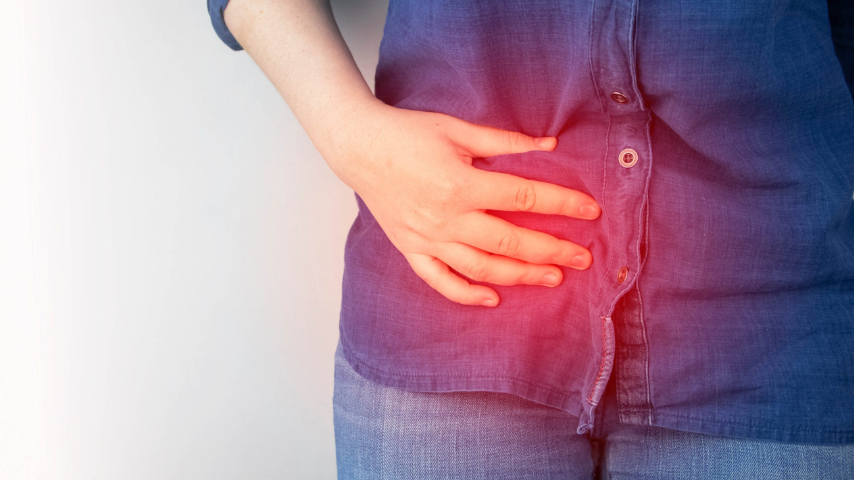Unveiling the Mystery of Kidney Stones: A Comprehensive Guide for Everyone

Introduction:
Kidney stones, also known as renal calculi, are hard deposits formed in the kidneys from minerals and salts found in urine. These stones can vary in size, from as small as a grain of sand to as large as a golf ball. While kidney stones can be incredibly painful and disruptive, understanding their symptoms, prevention methods, and treatment options can help manage and mitigate their impact on your health.
Signs and Symptoms:
Recognizing the signs and symptoms of kidney stones is crucial for prompt intervention and management. From excruciating pain to changes in urination patterns and even the presence of blood in urine, understanding these indicators empowers individuals to seek timely medical assistance and alleviate discomfort effectively.
- Intense Pain: One of the most common symptoms of kidney stones is intense pain in the back, side, abdomen, or groin. This pain can come in waves and may fluctuate in intensity as the stone moves within the urinary tract.
- Changes in Urination: Individuals with kidney stones may experience changes in their urination patterns, including frequent urination, urgency to urinate, or difficulty urinating.
- Blood in Urine: Hematuria, or blood in the urine, can occur when kidney stones irritate the urinary tract lining or cause damage to tissues as they pass through.
- Nausea and Vomiting: Some people with kidney stones may experience nausea and vomiting, often as a result of the severe pain they're experiencing.
- Fever and Chills: In cases where kidney stones lead to an infection or blockage, individuals may develop fever and chills as the body responds to the underlying condition.
Prevention:
Preventing kidney stones involves adopting healthy lifestyle habits and dietary choices. By staying hydrated, maintaining a balanced diet low in sodium and oxalate-rich foods, and managing weight effectively, individuals can significantly reduce their risk of developing these painful urinary tract obstructions.
- Stay Hydrated: Drinking an adequate amount of water each day can help prevent the formation of kidney stones by diluting urine and preventing minerals from crystallizing and forming stones.
- Balanced Diet: A diet rich in fruits, vegetables, and whole grains, and low in salt and animal proteins, can help reduce the risk of developing kidney stones. Limiting consumption of oxalate-rich foods like spinach, nuts, and chocolate may also be beneficial.
- Monitor Sodium Intake: High sodium intake can increase calcium levels in the urine, contributing to the formation of kidney stones. Be mindful of your salt intake and opt for low-sodium alternatives when possible.
- Maintain a Healthy Weight: Obesity is a risk factor for kidney stones, so maintaining a healthy weight through regular exercise and a balanced diet can help reduce your risk.
- Monitor Calcium Consumption: While adequate calcium intake is essential for bone health, excessive consumption may increase the risk of kidney stones. Aim for the recommended daily intake of calcium from food sources rather than supplements.
Treatment:
Treatment options for kidney stones vary depending on factors such as stone size, location, and individual health conditions. From pain management with over-the-counter medications to medical expulsion therapy, shock wave lithotripsy, and surgical intervention when necessary, addressing kidney stones promptly and effectively is paramount to restoring urinary tract health and minimizing discomfort.
- Pain Management: Over-the-counter pain medications such as ibuprofen or acetaminophen can help alleviate the discomfort associated with kidney stones. In severe cases, prescription pain medication may be necessary.
- Medical Expulsion Therapy: This approach involves taking medication to help relax the muscles of the urinary tract, making it easier for the stone to pass naturally.
- Extracorporeal Shock Wave Lithotripsy (ESWL): ESWL is a non-invasive procedure that uses shock waves to break up kidney stones into smaller fragments, making them easier to pass.
- Ureteroscopy: In this procedure, a thin, flexible scope is inserted through the urethra and bladder to access the urinary tract and remove or break up kidney stones using laser energy.
- Surgical Intervention: In cases where other treatments are ineffective or the stone is too large to pass naturally, surgical removal of the kidney stone may be necessary.
According to Dr Anil, HOD & Sr Consultant - Nephrologist and Transplant Physician, "Understanding the signs and symptoms of kidney stones is crucial for timely intervention. By recognizing these indicators and adopting preventive measures, individuals can significantly reduce their risk and maintain urinary tract health."
Conclusion:
Kidney stones can be a painful and disruptive condition, but with proper understanding, prevention, and treatment, their impact can be minimized. By staying hydrated, maintaining a balanced diet, and seeking medical attention when needed, individuals can reduce their risk of developing kidney stones and manage the condition effectively if it does occur. If you experience symptoms suggestive of kidney stones, consult a healthcare professional for proper evaluation and treatment. Remember, early intervention can make a significant difference in your overall health and well-being.
































